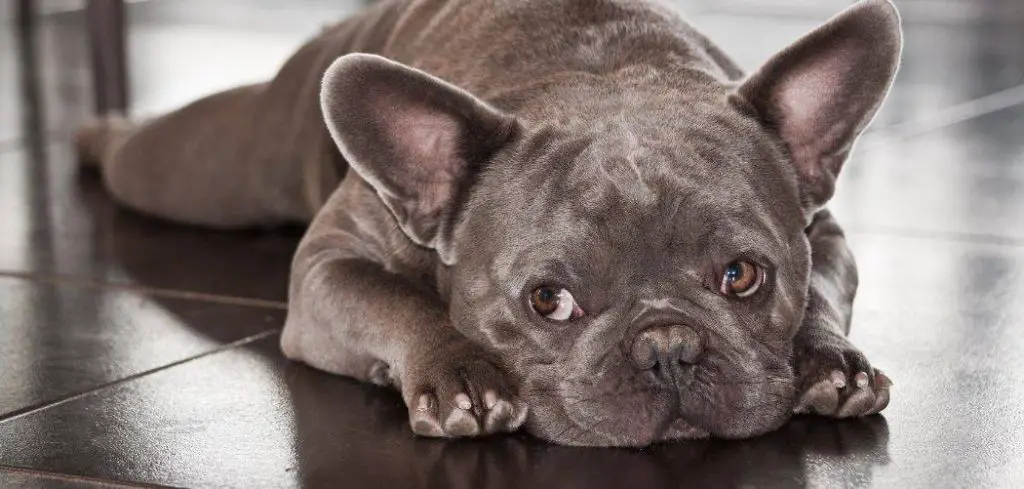When an old dog is not eating and drinking, it’s a serious red flag for dog owners. Loss of appetite and refusal to drink water in senior dogs can quickly lead to dehydration, weakness, and rapid deterioration.
We outline the common reasons why an old dog may not be eating and drinking, what you can do at home, and when to seek veterinary help.
Old Dog Not Eating and Drinking — Why It Happens
When an older dog refuses both food and water, it typically a sign of a serious underlying health issue. Common causes include kidney or liver disease, infections, pain, dental problems, or digestive upset. In some cases, systemic illnesses like cancer or heart failure may also result in a sudden loss of appetite and thirst.
Because senior dogs are less resilient, even brief periods of not eating or drinking can lead to dehydration, electrolyte imbalance, and dangerous weakness.

Old Dog Not Eating and Drinking: Common Causes
Kidney Disease
Kidney failure is common in senior dogs and can reduce appetite and thirst regulation.
As toxins accumulate in the bloodstream, dogs may feel nauseous and refuse food. Fluid intake may also decrease if they associate drinking with discomfort. Other signs may include increased urination initially, followed by decreased urination in late-stage disease.
Kidney disease requires veterinary diagnosis and management to slow progression and keep your dog comfortable.
Read more: Old dog not eating but drinking water (Here’s Why)
Liver Disease
Liver disease can lead to nausea, appetite loss, and reduced thirst.
When the liver cannot process toxins effectively, dogs may feel lethargic, weak, and unwilling to eat or drink. Yellowing of the gums or eyes (jaundice), vomiting, and diarrhea may also be present.
Prompt veterinary care is necessary to assess liver function and provide supportive treatments such as fluids, medications, or dietary adjustments.
Dental or Oral Pain
Dental disease or oral pain can make eating and drinking uncomfortable or painful.
Older dogs often develop tooth decay, gum inflammation, or oral infections. They may paw at their mouths, drool excessively, or show reluctance to chew or lap water.
Untreated oral pain can lead to malnutrition, dehydration, and secondary infections, which are especially risky in senior dogs.
Gastrointestinal Issues
Digestive problems like gastritis, pancreatitis, or intestinal obstructions can reduce appetite and fluid intake.
Pain, nausea, or bloating may cause a senior dog to avoid both food and water. Vomiting, diarrhea, or abdominal tenderness may also accompany these issues.
Many gastrointestinal conditions in older dogs require veterinary intervention to prevent dehydration, malnutrition, or life-threatening complications.
Infections
Systemic infections, such as urinary tract infections, pneumonia, or sepsis, can reduce appetite and thirst in senior dogs.
Fever, lethargy, or general malaise may make even drinking uncomfortable. Infection-related dehydration can escalate quickly, particularly in older dogs with weaker immune systems.
Early veterinary treatment, including fluids, antibiotics, or supportive care, is critical to recovery.
Pain or Arthritis
Pain from arthritis, joint inflammation, or other chronic conditions may also make older dogs less inclined to eat or drink.
Discomfort while moving or standing can cause stress and loss of appetite. Even bending down to lap water may become unpleasant.
Addressing pain through medication, supplements, or lifestyle adjustments can improve appetite and hydration.
What to Do If Your Old Dog Is Not Eating and Drinking
Provide a calm, comfortable environment and encourage hydration with small, frequent sips of water or ice cubes.
Offer soft, easy-to-digest foods, such as plain chicken and rice or specialized veterinary diets designed for seniors. Warming food slightly can increase aroma and encourage eating.
Monitor your dog closely for signs of dehydration, including sunken eyes, dry gums, or lethargy. You can also moisten food or provide low-sodium broths to support fluid intake.
Keep a consistent feeding schedule and minimize stress around meals. Avoid forcing food, as this can increase anxiety and worsen appetite loss.
When to Call or Visit Your Vet
Contact your veterinarian immediately if your dog refuses food and water for more than 12–24 hours.
Seek urgent care if you notice weakness, collapse, vomiting, diarrhea, or signs of pain. Seniors can deteriorate quickly, and dehydration may become life-threatening in a short time.
Chronic or gradual appetite loss also warrants evaluation. Blood tests, imaging, and physical exams can help identify kidney, liver, dental, or systemic problems that need targeted treatment.
Read more: Old Dog Not Eating (Causes and what to do)
Key Takeaway
When an old dog is not eating and drinking, it’s a medical concern that should never be ignored. Causes include kidney or liver disease, infections, dental pain, gastrointestinal issues, or systemic illness.
Support your dog at home with hydration, soft foods, and a calm environment, but always seek veterinary evaluation. Quick intervention can prevent dehydration, malnutrition, and serious complications, helping your senior dog remain comfortable and healthy.
